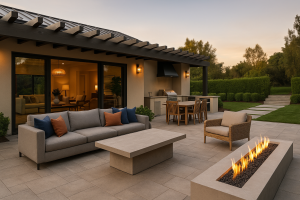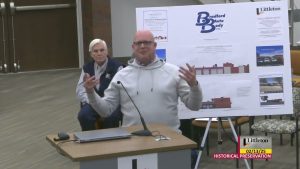As temperatures drop during the winter season, homeowners face a new set of challenges to ensure their plumbing system is functioning optimally. The cold weather can cause various plumbing problems, resulting in significant damage to your property and unnecessary expenses.
To prevent these issues, it is crucial to take action now. This article will explore the top 10 plumbing problems caused by cold weather and provide practical solutions to help you avoid them. From frozen pipes to water heater failures, we will cover the most common issues and offer tips on how to mitigate their impact.
By taking the necessary precautions, you can protect your plumbing system and ensure that you and your family stay comfortable throughout the winter season. Read on to learn how to avoid 10 Plumbing Problems Caused by Cold Weather today!
Frozen Pipes: A Common Cold Weather Plumbing Problem
During winter, frozen pipes are a common and potentially damaging problem that homeowners face. When water inside a pipe freezes, it expands and can cause the pipe to crack or burst. This can result in water damage to your property, not to mention costly repairs.
There are several reasons why pipes can freeze:
- Low temperatures: When temperatures drop below freezing, the water inside pipes can freeze if there is no insulation or heat source to keep it warm.
- Location: Pipes located in unheated areas like basements, attics, or crawl spaces are more susceptible to freezing.
- Duration of cold weather: The longer the cold weather lasts, the more likely pipes are to freeze.
- Water pressure: When water pressure drops, the water inside pipes can freeze more easily.
To prevent frozen pipes, there are several measures you can take:
- Insulate pipes: Insulating pipes with foam insulation or heating tape can help keep them warm and prevent freezing.
- Keep your home heated: Keeping your home heated to at least 55 degrees Fahrenheit can help prevent pipes from freezing.
- Let faucets drip: Allowing faucets to drip can help prevent pipes from freezing by releasing pressure within the pipes.
- Seal leaks: Sealing leaks in your home’s walls and foundation can help keep cold air out and prevent pipes from freezing.
If you suspect you have a frozen pipe, it’s important to act quickly to prevent further damage. Signs of a frozen pipe include no water coming out of faucets, strange smells coming from faucets, or visible frost on exposed pipes. If you suspect a frozen pipe, turn off the water supply and use a space heater or hair dryer to warm the pipe. You can also contact a professional plumber for assistance.
Burst Pipes: The Dangers of Freezing Temperatures
Freezing temperatures can cause significant damage to plumbing systems, including burst pipes. When water freezes, it expands, creating pressure within the pipes. This pressure can cause the pipes to crack or burst, leading to water damage and costly repairs.
To prevent burst pipes during cold weather, it is essential to take proactive measures, such as:
- Insulating pipes in unheated areas
- Keeping the house heated, even if you’re away
- Allowing faucets to drip slowly to relieve pressure
If you suspect a burst pipe, it’s crucial to turn off the main water valve immediately and contact a plumber for emergency repair. Ignoring the problem can lead to extensive water damage and costly repairs.
Water Heater Failure: Cold Showers in Winter
One of the most unpleasant experiences during cold weather is taking a cold shower. Unfortunately, water heater failure is a common issue that can lead to this problem.
When temperatures drop, the water inside the tank can become too cold for the heating element to function correctly, and the system may shut down. Additionally, sediment buildup can also cause issues, reducing the unit’s efficiency and increasing the likelihood of a malfunction.
To prevent water heater failure during cold weather, consider these tips:
- Flush the tank regularly to prevent sediment buildup.
- Insulate the unit’s pipes and tank to retain heat.
- Lower the thermostat to avoid overheating and reduce energy consumption.
- Consider getting a tankless water heater, which heats water on demand, instead of storing it in a tank.
By taking preventive measures, you can avoid the frustration of a cold shower and prolong the lifespan of your water heater. If you do experience water heater failure, contact a professional plumber to diagnose and repair the issue.
Faucet Leaks: Wasting Water in Chilly Weather
With the onset of cold weather, homeowners need to be wary of faucet leaks that can waste a significant amount of water. Typically, temperature fluctuations during winter can cause pipes to expand and contract, leading to leaks in the faucets and other plumbing fixtures. If left unchecked, faucet leaks can result in costly water bills and water damage to your home.
If you don’t take proper precautions, your faucet may start leaking even if it worked perfectly fine last season. Low temperatures cause the water inside the pipes to freeze and expand, which can crack the pipes and other components. As a result, water can start leaking from the faucet and cause damage to your home.
The good news is that most faucet leaks can be easily fixed with some basic tools and equipment. If you detect a leak from your faucet, turn off the water supply to that fixture and open the faucet to drain any remaining water. Then, disassemble the faucet and replace the worn-out washer or re-tighten the connections.
How to Detect a Faucet Leak
It’s essential to detect faucet leaks early to prevent water wastage and property damage. Here are some signs that indicate your faucet is leaking:
- Dripping faucet even when the handle is turned off
- Visible water stains or mold near the faucet
- Abnormally high water bills despite water usage remaining the same
Preventive Measures for Faucet Leaks
Here are some preventive measures that can help you avoid faucet leaks during cold weather:
- Insulate your pipes to prevent them from freezing
- Keep a consistent indoor temperature to avoid temperature fluctuations
- Open cabinet doors under sinks to allow warm air to circulate around pipes
- Turn off outdoor water sources and disconnect garden hoses
Remember, regular maintenance and care are essential to prevent faucet leaks and other plumbing problems during cold weather. If you notice any leaks or suspect any issues, it is best to call a professional plumber to diagnose and fix the problem to prevent any further damage to your home.
Sewer Line Blockages: Cold Weather’s Unpleasant Surprise
When the temperature drops, frozen sewer lines can be a major concern for homeowners. The frozen water inside sewer lines can cause blockages, leading to sewage backups and unpleasant odors in the home. To avoid this problem, take preventive measures.
What causes sewer line blockages in cold weather?
When the temperature drops, the water in the sewer line can freeze and cause a blockage. The blockage can cause water to back up into the house, which can lead to water damage and foul odors. Another cause of sewer line blockages can be tree roots that grow into the pipes seeking water and nutrients.
How to prevent sewer line blockages during cold weather?
The best way to prevent sewer line blockages is to avoid putting things down the drain that can cause blockages, such as grease, oils, fats, and wipes. You can also take the following steps:
- Ensure that the sewer line is properly insulated to prevent the sewer pipes from freezing.
- Keep the temperature in the home at a consistent level to avoid sudden temperature changes that can cause the pipes to freeze.
- Have a professional plumber perform a sewer line inspection and cleaning to remove any potential blockages before the cold weather hits.
- Install a backwater valve to prevent water from backing up into the house in the event of a sewer line blockage.
By taking these steps, you can prevent sewer line blockages and avoid unpleasant surprises during cold weather.
Sump Pump Malfunctions: Protecting Your Basement from Cold Weather
During cold weather, sump pumps may malfunction due to frozen discharge lines or overwhelmed systems. If your sump pump fails, your basement could be at risk of flooding. Below are some tips to ensure your sump pump is functioning properly during cold weather.
Check your sump pump regularly
Make sure your sump pump is working correctly by testing it regularly, especially during the winter months. Pour water into the sump pit to ensure the pump activates and the water is discharged outside. If you notice any issues, contact a professional plumber.
Keep your sump pit clean
A dirty sump pit can clog the pump and cause it to malfunction. Regularly remove debris, mud, and other materials from the sump pit to ensure the pump remains free from obstructions.
Insulate your discharge lines
Insulate your sump pump’s discharge lines to prevent freezing during cold weather. Frozen discharge lines can cause the pump to stop working, leading to flooding in your basement.
Consider a backup system
Install a battery-powered backup sump pump system to ensure your basement remains protected in case of a power outage or primary pump failure. This backup system will continue to work even if the primary system fails.
Contact a professional
As the saying goes, prevention is better than cure. By contacting a professional plumber, you can ensure your sump pump system is functioning at full capacity. A professional can identify any potential issues and provide advice on how to prevent sump pump malfunctions in the future.
Toilet Clogs: Cold Weather’s Unexpected Surprise
It’s never pleasant to experience a toilet clog, but did you know that cold weather can increase the likelihood of this happening? When temperatures drop, the water in the toilet bowl and pipes can cool and thicken, causing blockages and backups.
The good news is that there are steps you can take to prevent toilet clogs during cold weather:
| Preventative Measures | Actions You Can Take |
|---|---|
| Keep the bathroom warm | Use a space heater or keep the bathroom door closed to maintain a warmer temperature. |
| Flush often | Flush more frequently to keep water moving and prevent buildup. |
| Be mindful of what you flush | Only flush toilet paper and waste – avoid flushing anything else, such as wipes or feminine hygiene products. |
| Get regular plumbing maintenance | Hire a professional plumber to inspect your plumbing system and ensure it is in good working order. |
By taking these preventative measures, you can help avoid the unexpected surprise of a toilet clog during cold weather.
Water Pressure Issues: Cold Weather’s Impact on Plumbing Performance
Low water pressure during winter is a common problem that can affect the efficiency and performance of your plumbing system. The drop in temperature can cause issues with water pressure, leading to frustrating situations such as weak or slow-flowing water from your faucets or showerheads. Understanding the causes of water pressure issues and taking preventive measures can help you maintain optimal plumbing performance during cold weather.
Why does cold weather affect water pressure?
Water pressure relies on the amount of force that drives the water through the pipes. In winter, pipes can freeze due to the low temperatures, creating a blockage that restricts water flow. The decrease in water flow leads to a decrease in water pressure. Additionally, the increase in demand for hot water during cold weather can also lead to lower water pressure.
How can you prevent water pressure issues during cold weather?
To prevent low water pressure during winter, follow these tips:
- Insulate your pipes to prevent them from freezing
- Leave your faucets dripping to prevent water from freezing in the pipes
- Check for leaks in your plumbing system and fix them immediately
- Consider upgrading to a larger water tank to meet the increased demand for hot water during winter
What should you do if you experience water pressure issues?
If you experience low water pressure during cold weather, try the following:
- Check your main water valve to ensure it is fully open
- Clean your faucet aerators to remove any mineral buildup that could be obstructing water flow
- Check your water pressure regulator to ensure it is working properly
- Contact a professional plumber to assess and repair any underlying issues with your plumbing system
By taking preventive measures and addressing any water pressure issues promptly, you can ensure optimal plumbing performance during cold weather.
Frequently Asked Questions about Plumbing Problems Caused by Cold Weather
Here are some of the most frequently asked questions about plumbing problems caused by cold weather:
Q: Why do pipes burst during cold weather?
A: Water in pipes can freeze and expand, causing pressure buildup that can result in bursts. This can happen when temperatures drop below freezing and the pipes are not sufficiently insulated or heated.
Q: How can I prevent frozen pipes?
A: You can prevent frozen pipes by insulating pipes, opening cabinet doors to let warm air circulate, and letting faucets drip to keep water flowing. You can also keep your home at a consistent temperature and let faucets drip when temperatures drop below freezing.
Q: How can I know if I have frozen pipes?
A: Signs of frozen pipes include little or no water coming from faucets, strange smells, or visible damage to pipes. If you suspect that your pipes are frozen, it is best to call a professional plumber to assess and repair the damage.
Q: Why do water heaters fail during cold weather?
A: Water heaters can fail during cold weather due to several reasons, including increased demand for hot water, decreased air temperature in the room where the heater is located, or problems with the heating element or thermostat.
Q: How can I prevent water heater failure?
A: You can prevent water heater failure by maintaining the unit regularly, installing insulation around the heater, and lowering the temperature setting to reduce the demand for hot water.
Q: How can I detect a faucet leak?
A: Signs of a faucet leak include drips, puddles of water, or hissing sounds near the faucet. You can also conduct a simple test by turning off all water sources in your home and checking the water meter. If the meter is still running, you likely have a leak.
Q: Why do sewer lines block during cold weather?
A: Sewer lines can block during cold weather when frozen pipes or debris clog the line. When this happens, wastewater can back up into your home or yard, causing unpleasant smells and potential health hazards.
Q: How can I unclog a sewer line?
A: You should not attempt to unclog a sewer line on your own. Instead, call a professional plumber who can assess the situation and use specialized equipment to clear the blockage.
Q: Why do sump pumps fail during cold weather?
A: Sump pumps can fail during cold weather due to a loss of power, frozen discharge lines, or a malfunction in the pump itself.
Q: How can I prevent sump pump failure?
A: You can prevent sump pump failure by testing the unit regularly, installing a battery backup, and preventing discharge lines from freezing.
Q: Why do toilets clog during cold weather?
A: Toilets can clog during cold weather due to a combination of lower water pressure, thicker waste material, and increased usage of the toilet.
Q: How can I prevent toilet clogs?
A: You can prevent toilet clogs by using less toilet paper, avoiding flushing non-biodegradable items, and installing a high-performance toilet that can handle thicker waste material.
Remember that prevention is key when it comes to plumbing problems caused by cold weather. It is best to call a professional plumber if you suspect that you have any plumbing issues.










